Have you ever found yourself in your off-grid mobile home craving a piping hot bowl of mac and cheese but wondering how to use a microwave without electricity? If yes, you probably need a solar-powered microwave. In general, microwaves require a significant amount of power, especially high-powered and quick-heating models.
A compact microwave uses around 600-800 watts, whereas a commercial microwave consumes more than 1000 watts. Based on the power needs of your microwave, you can choose the right-sized Jackery Solar Generator. The premium-quality portable power station and solar panels work to convert maximum sunlight into electricity and power appliances.
Read along to learn what a solar-powered microwave is and how you can run a microwave on solar power in 2025.
What Is A Solar-Powered Microwave?
Before we dive deep into the nitty-gritty of how to power a microwave using solar panels, let us understand its basics.
A portable solar-powered microwave is a low-powered microwave that uses a solar panel to generate electricity. Whether you live in a mobile home, a camper, or an RV, a portable solar-powered microwave can work using solar energy.
Some of the main benefits of a solar power microwave include the following:
- Solar microwave is a sustainable and renewable energy source that does not use fossil fuels.
- As a sun-powered microwave uses the sun's power, you can save a lump sum of money on your electricity bills.
- It is an excellent option for those living in areas prone to power outages, blackouts, or other electricity-related issues.
The solar power microwave collects energy particles from the sun and charges the appliance. That said, they are perfect companions for using microwaves in areas without electricity access.
How To Run A Microwave On Solar Power?
Almost all home or outdoor appliances can be powered by solar energy, and microwaves are no different. You can use portable or fixed solar panels to either go entirely off the grid or power only high-power-consuming appliances like microwaves. The three methods to run a microwave using solar include rooftop solar panels (fixed), portable solar panels, or a solar generator.
|
Types |
Features |
Pros |
Cons |
|
Rooftop Solar Panels for Microwave |
- Fixed solar panels - Installed on rooftops - Require decent surface area on your roof |
- Help reduce high electricity bills - Can reduce your carbon emissions - Improve the value of your home |
- Not suitable for all types of roofs - Weather and location dependent - Involves high upfront costs - High installation costs involved |
|
Portable Solar Panels for Microwave |
- Fixed and portable - May have an additional battery for power storage - Weatherproof and portable in nature - Made of highly-efficient PV solar cells |
- Do not require high maintenance costs - Provides renewable energy to charge appliances - High-quality solar cells convert maximum solar energy into electricity - Foldable and portable in nature, making them easy to carry |
- May not work efficiently during cloudy, stormy, or rainy days. - May not be suitable for powering large appliances - Require additional components like an inverter, charge controller, and a battery |
|
Solar Generator for Microwave |
- Highly efficient solar panels for maximum charging efficiency - Portable power station to store the power |
- Instead of costly fossil fuels, they use free energy from the sun - Low maintenance costs - Clean and quiet operation - Can supply power during cloudy days or nights - Battery stores the unused power for later use |
- High upfront costs |
Rooftop Solar Panels For Microwave
As the name suggests, rooftop solar panels are installed on the roof of homes. The solar energy in the form of photons falls on the PV panels. The solar panel cells collect and transform the energy to power the appliances.
Pros
- Reduce the amount of electric bill while boosting the home's value.
- Excess electricity generated by solar power panels can be sold back to the electric grid, improving the economy.
- Installing solar panels on your home's roof curb your carbon emissions.
- Suitable only for residential purposes.
Cons
- As they are fixed, they cannot act as off-grid systems for RV trips or camping.
- Complex installation requires professional assistance.
- May not work efficiently for homes that receive low sunlight hours.
- May not provide constant and stable electricity, as they are weather and location dependent.
Portable Solar Panels For Microwave
Portable solar panels are a great choice because you can move them anywhere. They have a low cost of maintenance compared to fixed solar panels. Whether you go camping, hiking, or perform other outdoor activities, solar panels can charge your devices like microwaves, laptops, etc.
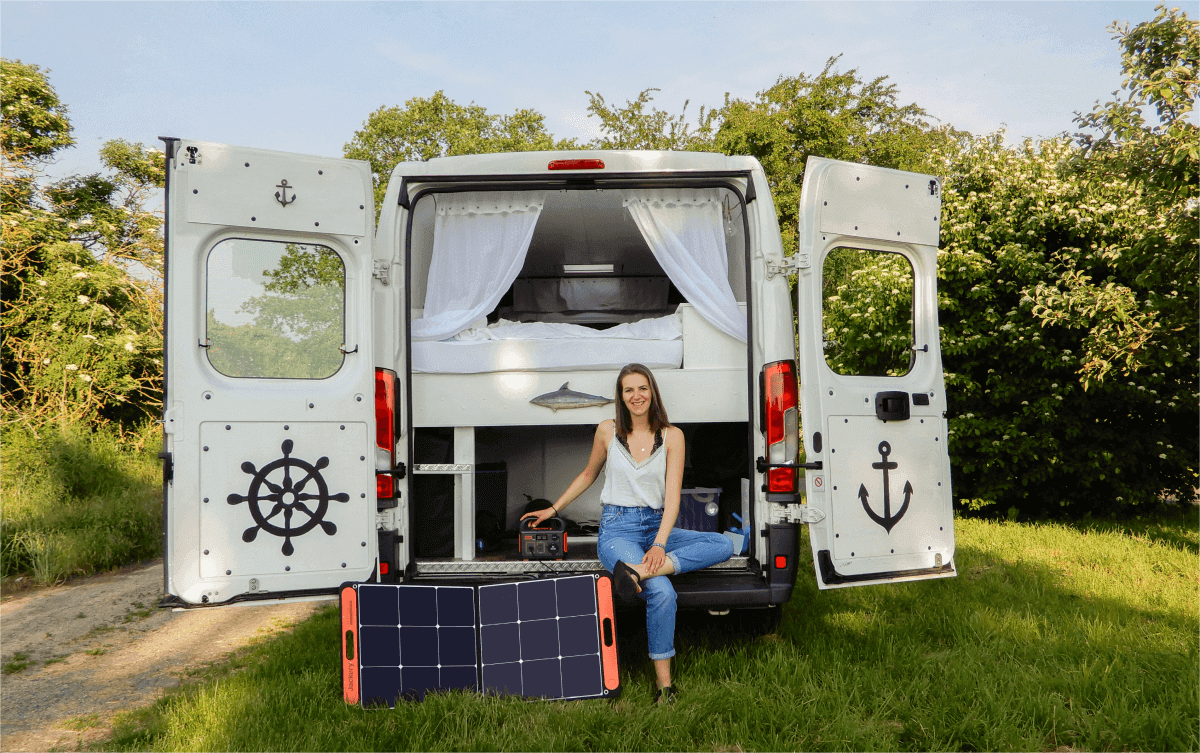
Pros
- Portable solar panels for microwaves are suitable for home and off-grid systems.
- Most portable solar panels are suitable for charging small devices like smartphones or tablets.
- Small and foldable solar panels are water-resistant and waterproof, making them suitable for homes, cabins, or vehicles.
Cons
- Need a proper inverter to work efficiently and charge appliances.
- May provide unstable electricity that can damage the devices when used without a power station.
The best way to charge your microwave is by using Jackery SolarSaga Solar Panels combined with Explorer Portable Power Station. The monocrystalline solar panels have a higher conversion rate and can help you charge all small and large appliances.
Solar Generator For Microwave
Solar generators act as an efficient and stable backup energy source if the grid goes down. They are portable enough to be used as an electricity source for your boat, RV, or campsite. It combines solar panels and a battery storage system to store power and charge appliances when sunlight is unavailable.
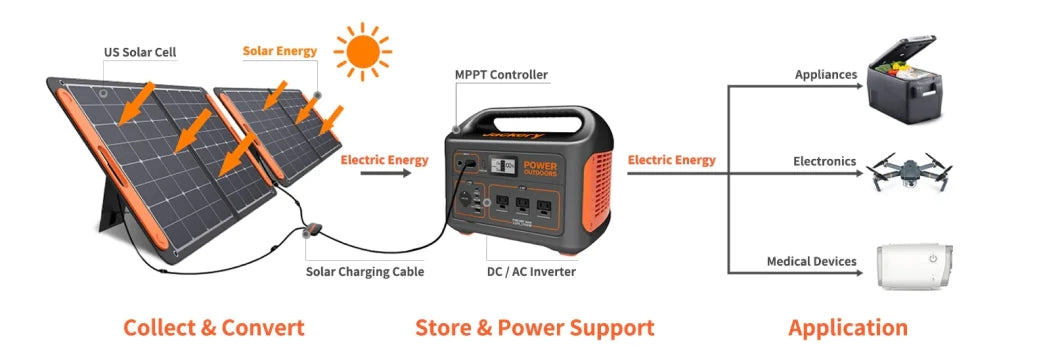
Jackery Solar Generator is a complete solar panel and battery system that collects, transforms, and stores the power to power appliances like microwaves. Small solar systems like Jackery Solar Generator 1000 v2 and Jackery Solar Generator 1000 Plus are suitable for charging high-power-consuming appliances like microwaves.
Larger systems like Jackery Solar Generator 2000 v2 and Jackery Solar Generator 2000 Plus are suitable to power 99% of the home appliances.
Pros
- Instead of using costly fossil fuels, a solar generator harnesses the power of free solar energy.
- It does not have moving parts, thereby lowering the need to repair.
- Unlike gas generators, solar generators are clean and quiet.
- The portable and lightweight design of the solar generator makes it suitable for outdoor adventures.
Cons
- Solar generators involve higher upfront investment.
How Many Watts Does A Microwave Use?
Microwave is one of the most important kitchen appliances that consume 600-1500 watts of electricity, depending on its size and model. Watts is the unit of energy that determines the electricity flow in appliances.
You can calculate the watt consumption of your appliance by multiplying amps by volts.
Watts = Amps × Volts
Here volts measure the speed of electricity passing through the electrical circuit, and amps are the number of electrons flowing through a circuit. Learn more about microwave wattage.
How Much Does It Cost To Run A Microwave?
The exact cost to run a microwave will depend on the wattage it consumes and the time you run it. For instance, if the microwave uses 1000 watts of energy and you run it for 20 minutes, the solar power consumed will be 1000*(⅓) = 333Wh or 0.33kWh. Now, you can multiply the cost per Wh or kWh to determine the total energy cost to run appliances.
Energy cost to run microwave = kWh × time running × $ per kilowatt hour
Below we include monthly and yearly costs to run a microwave in different states of the US.
|
State |
Average Electricity Rate |
Cost Per Month |
Cost Per Year |
|
California |
22.00 ¢ / kWh |
$1.34 |
$ 16.06 |
|
New York |
22.59 ¢ / kWh |
$ 1.25 |
$ 15.03 |
|
Texas |
12.56 ¢ / kWh |
$ 0.76 |
$ 9.17 |
|
Massachusetts |
22.59 ¢ / kWh |
$ 1.37 |
$ 16.49 |
|
Florida |
12.21 ¢ / kWh |
$ 0.74 |
$ 8.91 |
|
Virginia |
12.58 ¢ / kWh |
$ 0.77 |
$ 9.18 |
|
New Jersey |
16.20 ¢ / kWh |
$ 0.99 |
$ 11.83 |
|
Maryland |
14.48 ¢ / kWh |
$ 0.88 |
$ 10.57 |
|
Washington |
10.38 ¢ / kWh |
$ 0.63 |
$ 7.58 |
|
US Average |
14.19 ¢ / kWh |
$ 0.86 |
$ 10.36 |
How Much Solar Power Does A Microwave Need?
Calculating the solar power needed for a microwave is easy. You can multiply the wattage consumed by the appliance by the length of time to determine the solar energy.
|
Microwaves |
Wattage |
Length of Time |
Solar Power Needed |
|
Compact Size |
600W-800W |
30 Min |
300-400Wh |
|
Standard Size |
800W-1000W |
20 Min |
266-333Wh |
|
Commercial Size |
1000W or More |
15 Min |
250Wh |
Jackery Solar Products For Microwave
Portable solar generators are ideal charging options for microwaves and other electrical appliances. They are easy to set up and portable solutions, making them suitable for off-grid adventurers. Unlike rooftop solar power systems, portable solar generators are cost-effective and do not demand high maintenance.
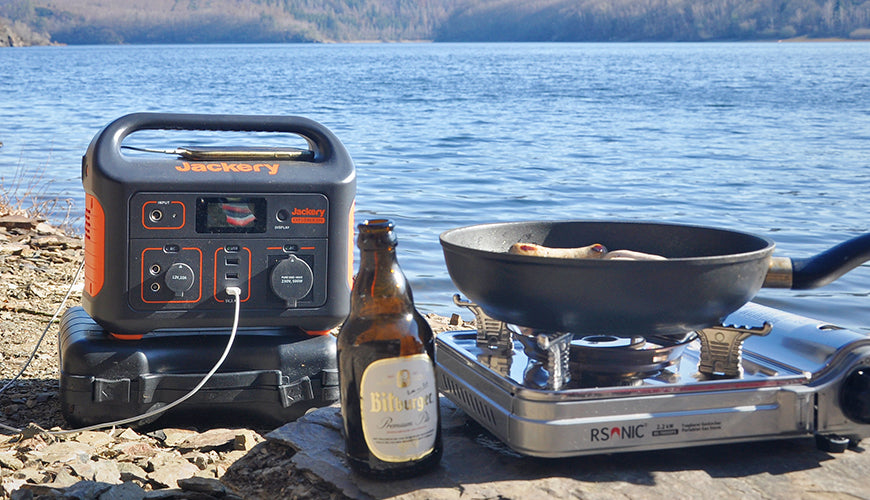
Jackery Solar Generators are made with high-quality materials and work efficiently during off-grid living or power outages. You can consider investing in Jackery Solar Generator 1000 v2 or Jackery Solar Generator 1000 Plus to power compact microwaves. On the contrary, Jackery Solar Generator 2000 v2 or Jackery Solar Generator 2000 Plus can charge large-size solar microwaves and other power-hungry appliances efficiently.
Jackery Solar Generator 2000 Plus
The Jackery Solar Generator 2000 Plus is perfect for charging large microwaves in remote areas or on long off-grid trips. Whether you want to cook full meals or reheat food during emergencies or outdoor adventures, the large solar-powered generator has got your back. It has a large battery capacity that can be extended from 2kWh to 24kWh with add-on battery packs.
Jackery Solar Generator 2000 v2
The Jackery Solar Generator 2000 v2 features a large capacity in a compact design, which makes it ideal for charging microwaves during outdoor adventures such as RV trips or camping. It has enough capacity to reheat cooked food and prepare quick meals for everyday convenience in outdoor and emergency situations.
Jackery Solar Generator 1000 Plus
The Jackery Solar Generator 1000 Plus offers a balance of portability and power, making it a reliable choice for casual adventurers. Featuring a foldable handle and compact design, you can easily move the generator anywhere you go. It also supports add-on battery packs to extend the capacity from 1.2kWh to 5kWh, so you can use the solar-powered generator during long RV trips.
Jackery Solar Generator 1000 v2
The Jackery Solar Generator 1000 v2 is a lightweight charging solution designed for light and infrequent microwave tasks like preparing small meals during outings. Its compact design makes it ideal for weekend explorers or minimalists looking for a simple solution for basic cooking needs. The power station has a foldable handle, so it can be moved anywhere.
|
Series |
Capacity |
Ports |
Microwave Watts |
Working Hours |
|
Jackery Solar Generator 2000 Plus |
2042.8Wh |
AC Output (×4):120V~ 60Hz, 20A Max AC Output (×1):120V~ 60Hz, 25A Max USB-A Output (x2): Quick Charge 3.0, 18W Max USB-C Output(x2): 100W Max, (5V, 9V, 12V, 15V, 20V up to 5A) Car Port (x1): 12V⎓10A |
Compact Size: 600W-800W Standard Size: 800W-1000W Commercial Size: 1000W+ |
Compact Size: 2.0-2.7H Standard Size: 1.6-2.0H Commercial Size: 1.6H |
|
Jackery Solar Generator 2000 v2 |
2042.8Wh |
AC Output (x3): 120V ~ 60Hz, 18.3A USB-A Output (x1): 18W Max, 5-6V⎓3A, 6-9V⎓2A, 9-12V⎓1.5A USB-C Output (x2): 30W Max, 5V⎓3A, 9V⎓3A, 12V⎓2.5A, 15V⎓2A, 20V⎓1.5A; 100W Max, 5V⎓3A, 9V⎓3A, 12V⎓3A, 15V⎓3A, 20V⎓5A Car Port (x1): 12V⎓10A Max |
Compact Size: 600W-800W Standard Size: 800W-1000W Commercial Size: 1000W+ |
Compact Size: 2.0-2.7H Standard Size: 1.6-2.0H Commercial Size: 1.6H |
|
Jackery Solar Generator 1000 Plus |
1264Wh |
AC Output (x3): 120V~60Hz, 2000W (4000W Peak) USB-A Output (x2): 18W Max, 5-5V⎓3A USB-C Output (x2): 100W Max, (5V, 9V, 12V, 15V, 20V up to 5A) Car Port (x1): 12V⎓10A |
Compact Size: 600W-800W Standard Size: 800W-1000W Commercial Size: 1000W+ |
Compact Size: 1.2-1.6H Standard Size: 1.0-1.2H Commercial Size: 1.0H |
|
Jackery Solar Generator 1000 v2 |
1070Wh |
AC Output (x3): 120V ~ 60Hz USB-A Output (x1): 18W Max 5-6V⎓3A, 6-9V⎓2A, 9-12V⎓1.5A Car Port (x1): 12V⎓10A USB-C1 Output: 30W Max 5V⎓3A, 9V⎓3A, 12V⎓2.5A, 15V⎓2A, 20V⎓1.5A USB-C2 Output: 100W Max 5V⎓3A, 9V⎓3A, 12V⎓3A, 15V⎓3A, 20V⎓5A |
Compact Size: 600W-800W Standard Size: 800W-1000W Commercial Size: 1000W+ |
Compact Size: 1.0-1.4H Standard Size: 51 Min - 60 Min Commercial Size: 51 Min |
Note: The working hours of the appliances mentioned in the table are just for reference and may vary from actual runtime.
Solar Powered Microwave FAQs
What size of solar generator do I need to run a microwave?
The size of a solar generator will depend on the wattage of the microwave, the size, and the time you run it.
Estimating the working hours of the Jackery Solar Generator is straightforward. Navigate to the Jackery Solar Generator's page you would like to purchase, find the Running Time Calculator, and input the wattage of your chosen appliance. This will provide an estimated runtime. For example, the Jackery Solar Generator 2000 Plus can run a 800W microwave for about 2.0 hours. Remember, the calculated values are approximate and may not exactly match real-world usage.
The pass-through charging feature of the solar generator ensures you can charge appliances and the generator simultaneously.
How many solar panels do I need to run a microwave?
As you will operate the microwave only for a few minutes, you can invest in a few solar panels. Here is the estimation of solar power panels you need for different sizes and capacities of microwaves.
|
Microwave Wattage |
Solar Generator With Solar Panels |
|
600W |
Jackery Solar Generator 1000 v2 (Explorer 1000 v2 + SolarSaga 200W) |
|
800W |
Jackery Solar Generator 1000 v2 (Explorer 1000 v2 + SolarSaga 200W) |
|
1000W |
Jackery Solar Generator 1000 Plus (Explorer 1000 Plus + SolarSaga 200W) |
|
1200W |
Jackery Solar Generator 2000 Plus (Explorer 2000 Plus + SolarSaga 200W) |
Jackery SolarSaga Solar Panels are built using high-grade solar cells, making them highly efficient. You can connect one or two solar panels to a portable power station to charge all electrical devices, including microwaves.
Can I use a solar generator to power a house?
Yes. You can use a powerful solar generator to power a house. Jackery Solar Generators are a highly efficient and portable combination of solar panels and power stations for home usage. Jackery Solar Generator 2000 Plus is the ultimate power solution capable of powering 99% of most home appliances during power outages.
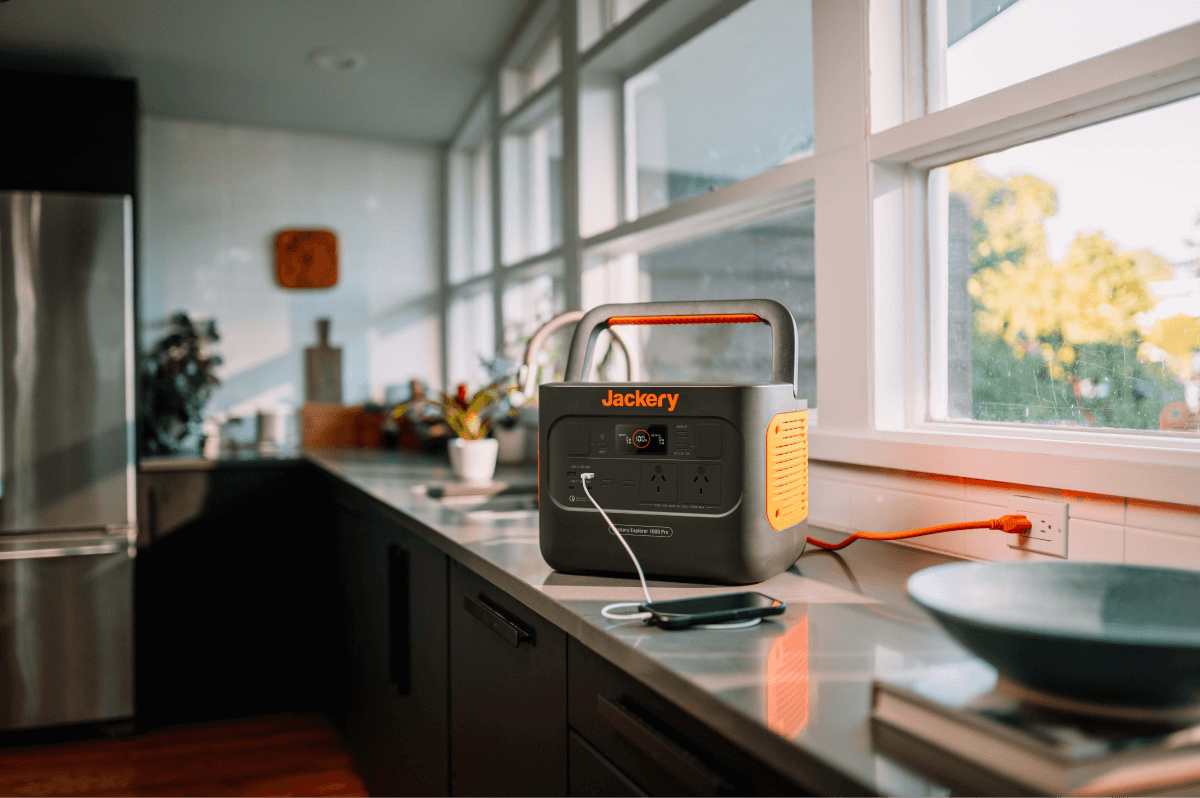
Final Thoughts
With rising fuel costs and soaring electricity prices, many people are looking to power their home appliances using solar energy. A solar-powered microwave is an excellent addition to power devices during home or outdoor activities.
However, charging electrical appliances by directly plugging them into solar panels can be cumbersome and unsafe. That's why it's better to invest in a solar generator for a microwave.
Jackery is the top-selling brand offering powerful and portable solar generators that can power most home appliances, including but not limited to electrical grills, refrigerators, washing machines, microwaves, etc.
Don't miss subscribing to the Jackery newsletter to get all the latest news about our products in your inbox!

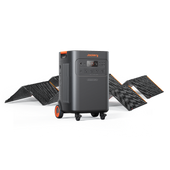











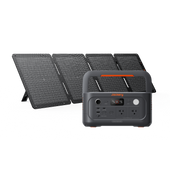



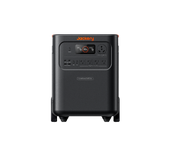
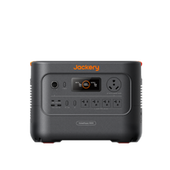





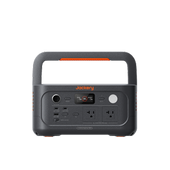





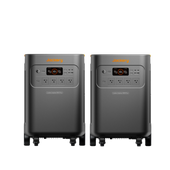
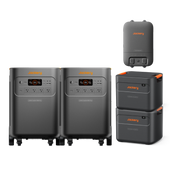





![[Add - on] Jackery Manual Transfer Switch for Explorer 5000 Plus - Jackery](http://www.jackery.com/cdn/shop/files/add-on-jackery-manual-transfer-switch-for-explorer-5000-plus-9017324.png?v=1754016782&width=170)

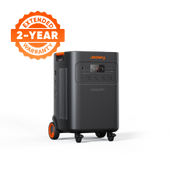
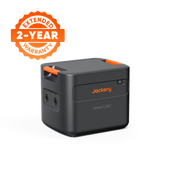
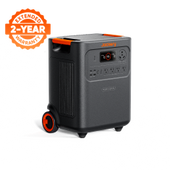
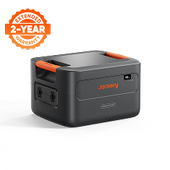
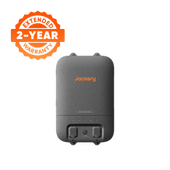



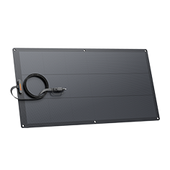
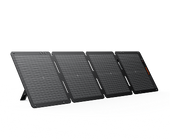




















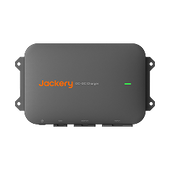




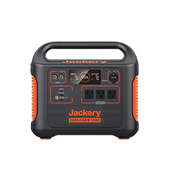






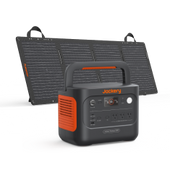
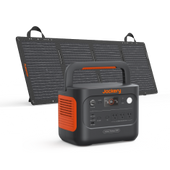






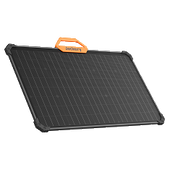

















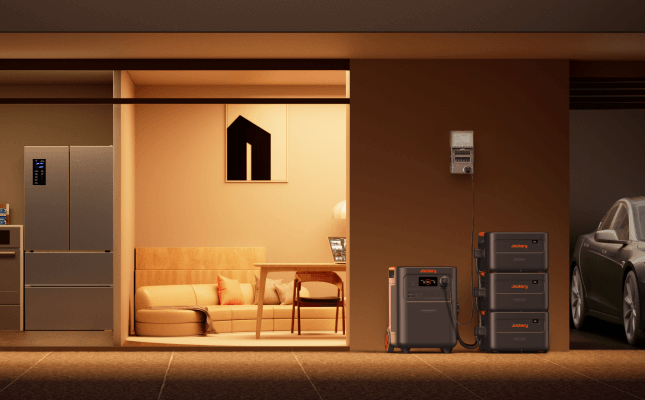


























What is the maximum power ur generator can power – clean is it able to do 3000w
Leave a comment